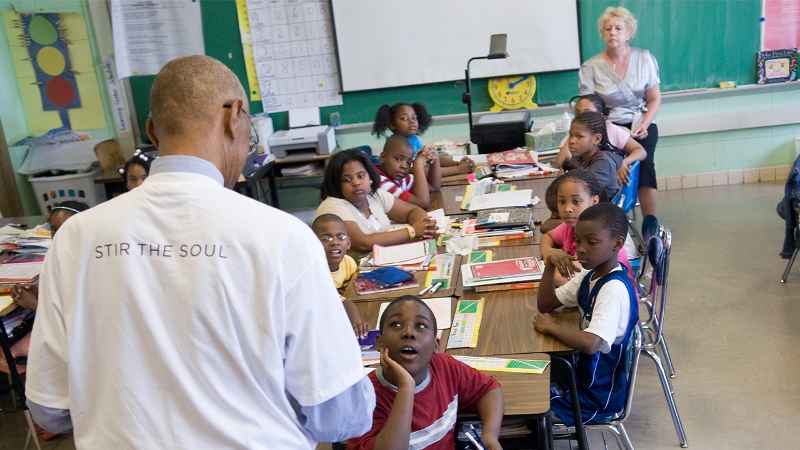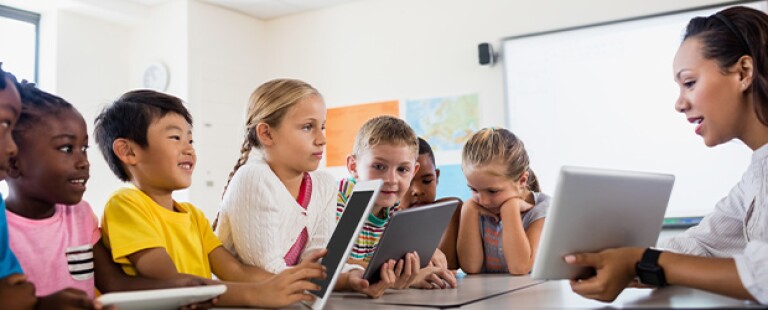Master Primary Science Concepts with Quality Tuition in Singapore
Master Primary Science Concepts with Quality Tuition in Singapore
Blog Article
Discovering the Various Training Approaches in Key Science Education Today
The landscape of key scientific research education is developing, with numerous training techniques getting importance in contemporary class. Inquiry-based knowing, hands-on experiments, and the integration of modern technology are redefining how educators engage young minds. In addition, collective methods and separated instruction are being used to deal with the diverse requirements of trainees, enhancing both interaction and understanding. As we take a look at these techniques, inquiries emerge concerning their effectiveness and the effects for future educational techniques. What might these shifts in strategy mean for the future generation of learners?
Inquiry-Based Understanding
Inquiry-Based Learning (IBL) is a pedagogical strategy that urges pupils to discover scientific principles through doubting, investigation, and hands-on testing. This approach highlights the role of students as active participants in their discovering, promoting essential thinking and problem-solving abilities. By engaging with real-world concerns, pupils come to be curious and determined, which boosts their understanding of scientific concepts.
In IBL, instructors act as facilitators, guiding pupils as they browse their questions instead of delivering info straight. This student-centered method enables distinction, fitting various finding out designs and rates. Students establish skills in creating hypotheses, developing experiments, and evaluating data, which are crucial for scientific proficiency.
In addition, IBL cultivates collaboration among trainees, encouraging them to share concepts and findings. This cumulative questions promotes social abilities and a feeling of community within the class. The process of questions encourages strength, as trainees learn to embrace failing as a tipping rock towards understanding.
Hands-On Experiments
Hands-on experiments are an important part of efficient science education and learning, complementing the concepts of inquiry-based understanding. These experiments permit trainees to involve straight with scientific principles, cultivating a deeper understanding through experiential knowing. By adjusting materials and observing results, young learners can comprehend abstract concepts in tangible means.
Such activities advertise vital thinking and problem-solving abilities, as students assume outcomes, conduct experiments, and examine outcomes. This process encourages them to ask questions, improve their understanding, and develop a clinical way of thinking. Moreover, hands-on experiments can be tailored to diverse learning designs, ensuring that all students have the possibility to involve meaningfully with the content.
In addition, hands-on experiments typically encourage cooperation among peers, advertising synergy and interaction abilities. Operating in groups makes it possible for pupils to share ideas, talk about searchings for, and gain from each other, which enhances their overall instructional experience.
Including hands-on experiments right into the primary scientific research curriculum not just enriches the discovering setting but likewise cultivates a long-lasting passion in science. By actively taking part in their education and learning, trainees are much more most likely to develop a passion for scientific query that prolongs beyond the classroom.

Innovation Combination
Integrating technology right into main science education has actually ended up being progressively necessary in cultivating student engagement and boosting finding out outcomes. Making use of digital devices, such as interactive simulations, online laboratories, and educational software program, provides trainees with opportunities to check out clinical principles in innovative methods. These sources assist in a much deeper understanding of complicated topics by enabling students to envision and control variables that would certainly be not practical in a traditional classroom setting.
Moreover, innovation assimilation urges customized learning experiences. Students can advance at their very own pace, taking another look at challenging concepts through multimedia resources, which deal with different learning styles. This adaptability not just sustains private development yet additionally grows a feeling of autonomy in learners.
Additionally, technology offers as a bridge to real-world science, linking students with existing research and specialist contributions. Access to scientific journals and online databases expands pupils' viewpoints on clinical query and promotes crucial believing skills.
Collaborative Knowing
Joint discovering plays an important function in key scientific research education by fostering teamwork and interaction skills among students. This method motivates learners to function together, share understanding, and participate in problem-solving, which boosts their understanding of clinical principles. By joining team activities, pupils discover to articulate their concepts, pay attention to diverse viewpoints, and work out options, all of which are necessary skills in both academic and real-world contexts.

Research suggests that collaborative understanding can result in raised motivation and interaction in science subjects, as trainees find pleasure in common experiences (primary science tuition Singapore). In addition, this approach prepares pupils for future collective endeavors, furnishing them with the skills essential for effective team effort in higher education and expert atmospheres. Ultimately, embracing collaborative knowing in main science education and learning can significantly enrich the learning experience and advertise a deeper understanding of scientific query
Set Apart Direction

Distinguished direction can materialize in different methods, such as varying the material, processes, or products of knowing. For example, teachers may use tiered assignments that provide differing degrees of intricacy, enabling trainees to operate at their respective readiness degrees. In addition, versatile grouping techniques can help with collaboration amongst trainees with different abilities, pop over here cultivating peer understanding.
Analysis plays a critical duty in this technique, as it notifies direction and helps instructors comprehend each student's special requirements. Formative analyses, such as tests and observations, can lead instructors in readjusting their methods to enhance finding out outcomes. primary science tuition Singapore. Inevitably, by executing differentiated direction in primary scientific research education, instructors can cultivate an extra reliable and equitable understanding environment, equipping all trainees to reach their complete potential in recognizing clinical phenomena
Final Thought
In recap, the diverse mentor strategies in primary science education and learning, consisting of inquiry-based knowing, hands-on experiments, innovation integration, collaborative discovering, and differentiated direction, jointly add to a more effective knowing setting. These approaches promote vital reasoning, analytic abilities, and a deeper comprehension of scientific ideas. By carrying out these approaches, educators can create helpful and appealing class that attend to the diverse needs of students, eventually cultivating a long-lasting passion in science and enhancing academic achievement.
Inquiry-Based Knowing (IBL) is an instructional strategy that urges pupils to explore clinical ideas via wondering about, examination, and hands-on trial and error.Collaborative knowing plays a crucial function in key science education by fostering team effort and communication skills among trainees.Research study shows that collaborative knowing can lead to enhanced motivation and Discover More Here engagement in science topics, as students find satisfaction in common experiences.In fostering a comprehensive discovering atmosphere, distinguished instruction arises as a key method to accommodate the varied needs and capacities of trainees in key science education and learning. Inevitably, by executing differentiated direction in primary scientific research education, instructors can cultivate an extra efficient and fair knowing setting, equipping all students to reach their complete capacity in recognizing scientific sensations.
Report this page